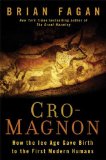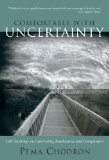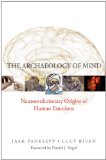The new month brings a fresh batch of 100 Kindle Books for $3.99 or Less at Amazon.com. (“Individual books may have additional territory restrictions, and not all deals are available in all territories. Amazon may modify the selection of books offered at any time.”)
Selections for September include:

Cro-Magnon: How the Ice Age Gave Birth to the First Modern Humans by Brian Fagan for $2.99.
Book description from the publisher:
Cro-Magnons were the first fully modern Europeans-not only the creators of the stunning cave paintings at Lascaux and elsewhere, but the most adaptable and technologically inventive people that had yet lived on earth. The prolonged encounter between the Cro-Magnons and the archaic Neanderthals and between 45,000 and 30,000 years ago was one of the defining moments of history. The Neanderthals survived for some 15,000 years in the face of the newcomers, but were finally pushed aside by the Cro-Magnons’ vastly superior intellectual abilities and cutting-edge technologies, which allowed them to thrive in the intensely challenging climate of the Ice Age.
What do we know about this remarkable takeover? Who were the first modern Europeans and what were they like? How did they manage to thrive in such an extreme environment? And what legacy did they leave behind them after the cold millennia? The age of the Cro-Magnons lasted some 30,000 years-longer than all of recorded history. Cro-Magnon is the story of a little known, yet seminal, chapter of human experience.

Essays in Humanism by Albert Einstein for $1.99
An inspiring collection of the great thinker’s views on a rapidly changing world
Nuclear proliferation, Zionism, and the global economy are just a few of the insightful and surprisingly prescient topics scientist Albert Einstein discusses in this volume of collected essays from between 1931 and 1950. Written with a clear voice and a thoughtful perspective on the effects of science, economics, and politics in daily life, Einstein’s writings provide an intriguing view inside the mind of a genius addressing the philosophical challenges presented during the turbulence of the Great Depression, the Second World War, and the dawn of the Cold War.
This authorized Philosophical Library ebook features rare photos and never-before-seen documents from the Albert Einstein Archives at the Hebrew University of Jerusalem.

Real Happiness: The Power of Meditation by Sharon Salzburg for $2.99
Book description from the publisher:
Thousands of years prove it, and Western science backs it: Meditation sharpens focus. Meditation lowers blood pressure, relieves chronic pain, reduces stress. Meditation helps us experience greater calm. Meditation connects us to our inner-most feelings and challenges our habits of self-judgment. Meditation helps protect the brain against aging and improves our capacity for learning new things. Meditation opens the door to real and accessible happiness.
There is no better person to show a beginner how to harness the power of meditation than Sharon Salzberg, one of the world’s foremost meditation teachers and spiritual authors. Cofounder of the Insight Meditation Society, author of Lovingkindness, Faith, and other books, Ms. Salzberg distills 30 years of teaching meditation into a 28-day program that will change lives. It is not about Buddhism, it’s not esoteric—it is closer to an exercise, like running or riding a bike. From the basics of posture, breathing, and the daily schedule to the finer points of calming the mind, distraction, dealing with specific problem areas (pain in the legs? falling asleep?) to the larger issues of compassion and awareness, Real Happiness is a complete guide. It explains how meditation works; why a daily meditation practice results in more resiliency, creativity, peace, clarity, and balance; and gives twelve meditation practices, including mindfulness meditation and walking meditation. An extensive selection of her students’ FAQs cover the most frequent concerns of beginners who meditate—“Is meditation selfish?” “How do I know if I’m doing it right?” “Can I use meditation to manage weight?”

Comfortable with Uncertainty: 108 Teachings on Cultivating Fearlessness and Compassion by Pema Chodron for $2.99
Book description from the publisher:
This book offers short, stand-alone readings designed to help us cultivate compassion and awareness amid the challenges of daily living. More than a collection of thoughts for the day, Comfortable with Uncertainty offers a progressive program of spiritual study, leading the reader through essential concepts, themes, and practices on the Buddhist path.
Comfortable with Uncertainty does not assume prior knowledge of Buddhist thought or practice, making it a perfect introduction to Chödrön’s teaching. It features the most essential and stirring passages from Chödrön’s previous books, exploring topics such as lovingkindness, meditation, mindfulness, “nowness,” letting go, and working with fear and other painful emotions. Through the course of this book, readers will learn practical methods for heightening awareness and overcoming habitual patterns that block compassion.









